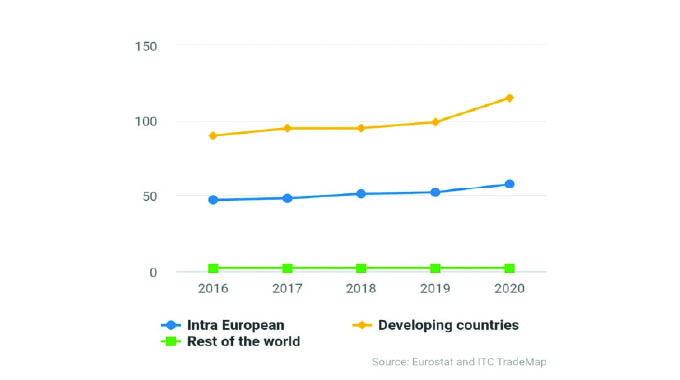Farmers strike gold with Chilli deal

Edgar Vhera-Agriculture Specialist Writer
SMALLHOLDER horticulture farmers in Chimanimani are in for rich pickings following the operationalisation of the Horticulture Recovery and Growth Plan (HRGP) that has, among other things, seen them exporting African bird eye chilli to lucrative European Union markets.
Dombera Farm managing director Mrs Claire Bailey revealed this during an interview with The Herald Agri-Business yesterday.
“Dombera Farm is good agricultural practices (GAP) certified and registered on Sedex Members Ethical Trade Audit (SMETA).
“We support smallholder farmers to access international markets. Dombera Farm provides farmers with top quality plant genetics and trains them on sustainable farming techniques that protect their natural resources and boost their incomes.
“As one of the five lead firms in Zimbabwe selected to participate in the UK Trade Partnerships Programme (UKTP), Dombera Farm acts as a centralised hub to grade and package products, provide transport and ultimately create market linkages. We currently have 70 smallholder farmers on seven hectares of land,” said Mrs Bailey.
Mrs Bailey said they underwrote (guarantee) loans that farmers get from a local bank and aggregate the produce.
The world is witnessing an increasing demand for fresh produce that is healthy, sustainably and ethically safe to eat. International consumers want to know where produce came from, support rendered to smallholder farmers for continuity and accountability — something many developing nations are unable to do.
The growing appetite for spicy foods has resulted in Europe becoming the second biggest importer of dried chillies in the world with developing countries being the major producers.
High quality and sustainably produced chillies fetch high prices on the market
Chillies are a premium product with superior colour and taste due to climate.
In the wake of the devastating Cyclone Idai, Dombera Farm is seized with helping smallholder farmers build resilience using biological control techniques to minimise environmental impact.
They are also training them on adherence to GAP procedures to ensure food safety and environmental accountability.
Zimbabwe faces competition in production of dried chillies for EU markets from India, China and South America.
Though India is the largest producer of chillies in the world, it faces food safety concerns from aflatoxins and is known for adding flavour and colour enhancers.
China, as the second largest exporter in the world is struggling with access to labour and unfavourable weather conditions.
Zimbabwe produces ‘clean label’ chillies with no artificial colours or flavours and spicier chillies than China. It has high adherence to environmental and international standards.
Zimbabwe’s unique selling point is the slow grown, mountain chillies of superior colour and taste, sustainably produced by smallholder farmers under high environmental standards.
To achieve its vision Dombera Farm is seeking affordable, medium-long term patient capital or equity for rebuilding dams for improved water security on the farm to increase cropping area.
There are also plans to expand the community project to contain 200 farmers on 20ha from the current 70 on seven hectares as well as funding for grower inputs, processing equipment and solar hybrid cold room.
Dombera is contracting smallholder farmers to grow chillies on part of their farms for export. The contract package involves Chilli seedlings to the growers, subsidised inputs, training, building infrastructure and regularly visits the farmers.
Meanwhile, fast foods outlet, Nandos has disclosed that they have contracted 750 smallholder farmers across Zimbabwe to produce chillies for them. The A grade is sent to South Africa where it is tested and crushed into powder and mixed with different spices for distribution to their outlets.
One of the farmers, Mr Meeting Matsikure from Zaka revealed that he produced three tonnes last season, which her sold and bought three head of cattle before paying lobola with the remainder.
“I managed to buy three cows and pay lobola for my wife using the earnings. I can eat whatever I want and purchase inputs for other crops from my earnings,” said Mr Matsikure.
Within the horticulture export business, chillies, which are part of the ‘spices and herbs’ group had their average price slightly increasing from US$1, 95 to US$1, 97 per kilogramme in 2021 compared to 2020.










Comments